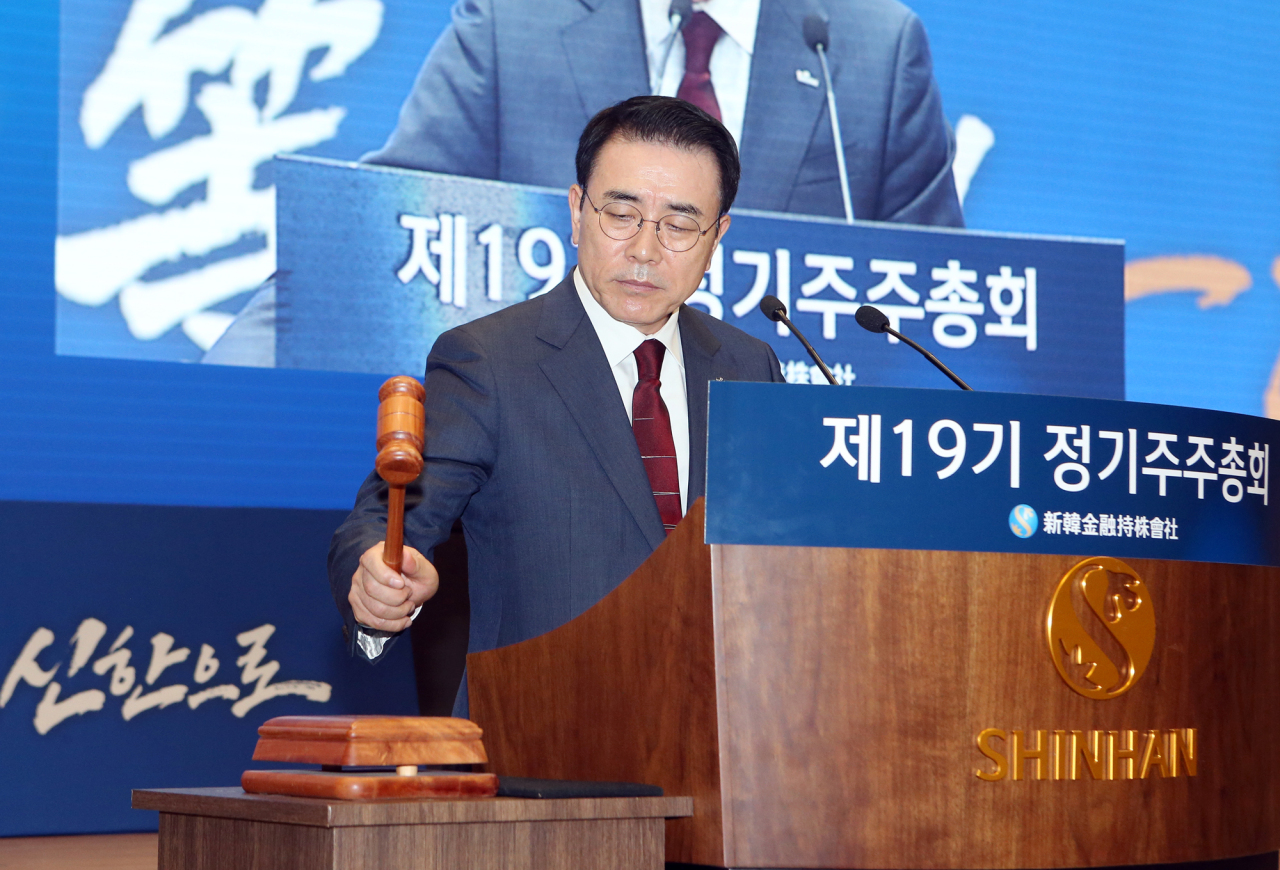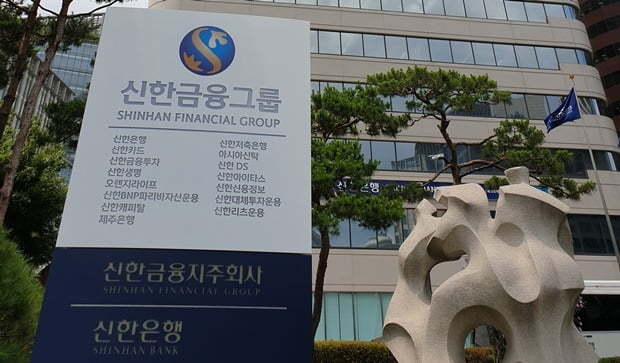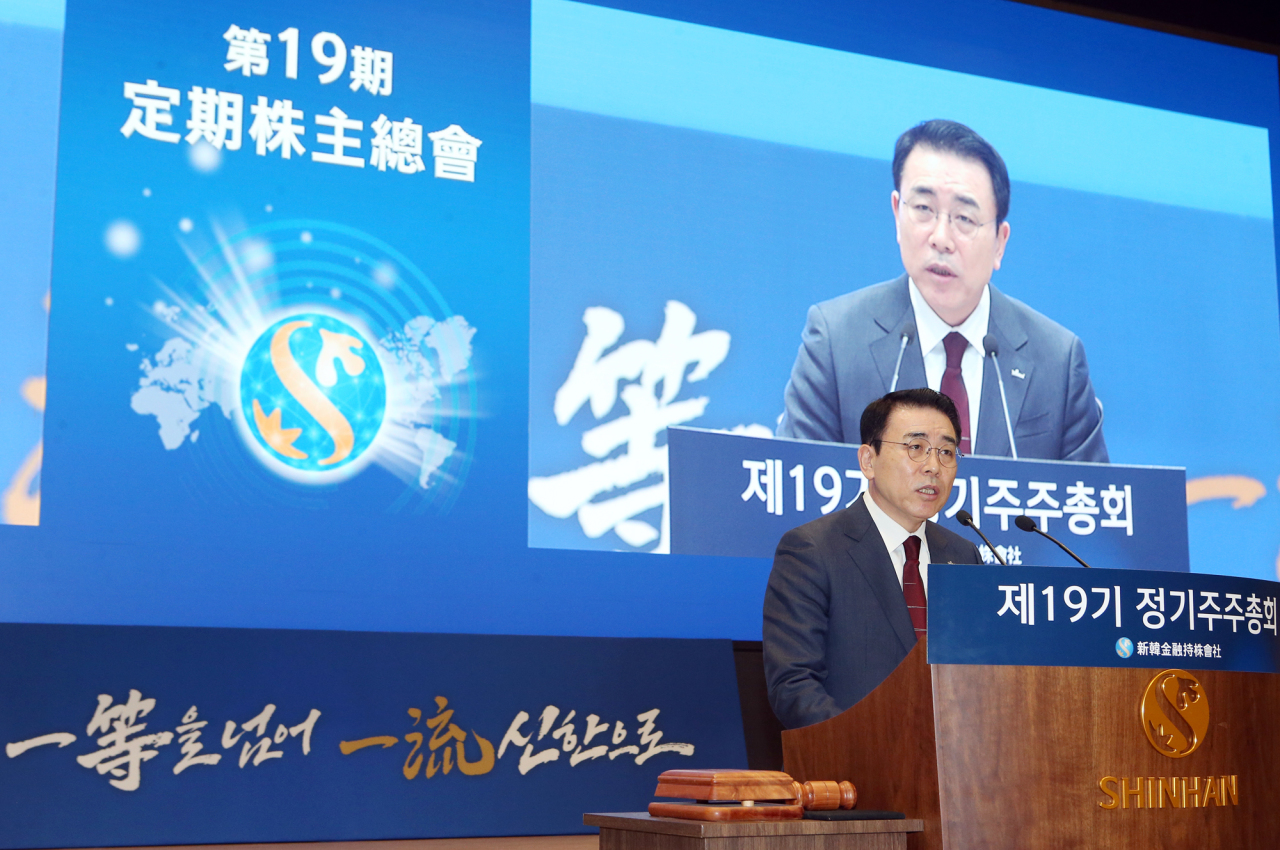[Decoding Shareholders] Is Shinhan breaking ties with Korean-Japanese shareholders?
Banking group announces capital raise involving Hong Kong-based equity in unlikely moment, prompting questions on motives
By Jung Min-kyungPublished : Sept. 13, 2020 - 14:15

This is a part of a series exploring the governance structure of financial giants in South Korea and examining diversity and transparency in boardrooms. -- Ed.
Shinhan Financial Group has, for many years, been distinguished from its industry peers by its biggest group of shareholders -- Korean Japanese individuals believed to hold some 15 percent stake in the firm combined.
This is due to its unique beginnings, born as Shinhan Bank -- now the holding group’s flagship unit -- from an investment of 25 billion won ($21 million) made by more than 300 Japanese people of Korean descent in 1982. Many of their descendants have inherited the stakes since.
And while there have been a few shaky moments, the company’s top-level executives and shareholders have seemed to be content with their decadeslong relationship. Until now, that is.
The banking group’s board of directors on Sept. 4 decided on a capital raise by issuing some 39 million shares worth 1.15 trillion won to Hong Kong-based private equity firms Affinity Equity Partners and Baring Private Equity Asia.
Waves of confusion were sent across the market by the unexpected announcement, as a capital raise is usually pursued by companies when their stocks are flying high, allowing them to make the most of the situation. But Shinhan’s stocks have been trading at around 28,000 won per share for weeks now, compared to some 40,000 won around the end of last year.
The banking group said the unconventional move is to secure capital “to foster capability to absorb possible blows from a protracted COVID-19 pandemic and pursue the firm’s long-term growth strategy.” The vague explanation has only added to confusion.
While the move prompted divided responses from the market, it would certainly bring “change,” whether positive or negative, experts said.
“This boils down to long-term shareholders and investors leaving,” an analyst at the Korea Institute of Finance, who requested anonymity, told The Korea Herald on Friday.
“Foreign PEFs could give more independence to the group, but at the same time they could only be interested in making short-term profits -– it’s a double-edged sword,” the analyst added.
Shinhan Financial Group has, for many years, been distinguished from its industry peers by its biggest group of shareholders -- Korean Japanese individuals believed to hold some 15 percent stake in the firm combined.
This is due to its unique beginnings, born as Shinhan Bank -- now the holding group’s flagship unit -- from an investment of 25 billion won ($21 million) made by more than 300 Japanese people of Korean descent in 1982. Many of their descendants have inherited the stakes since.
And while there have been a few shaky moments, the company’s top-level executives and shareholders have seemed to be content with their decadeslong relationship. Until now, that is.
The banking group’s board of directors on Sept. 4 decided on a capital raise by issuing some 39 million shares worth 1.15 trillion won to Hong Kong-based private equity firms Affinity Equity Partners and Baring Private Equity Asia.
Waves of confusion were sent across the market by the unexpected announcement, as a capital raise is usually pursued by companies when their stocks are flying high, allowing them to make the most of the situation. But Shinhan’s stocks have been trading at around 28,000 won per share for weeks now, compared to some 40,000 won around the end of last year.
The banking group said the unconventional move is to secure capital “to foster capability to absorb possible blows from a protracted COVID-19 pandemic and pursue the firm’s long-term growth strategy.” The vague explanation has only added to confusion.
While the move prompted divided responses from the market, it would certainly bring “change,” whether positive or negative, experts said.
“This boils down to long-term shareholders and investors leaving,” an analyst at the Korea Institute of Finance, who requested anonymity, told The Korea Herald on Friday.
“Foreign PEFs could give more independence to the group, but at the same time they could only be interested in making short-term profits -– it’s a double-edged sword,” the analyst added.

Another analyst, Seo Young-soo, at local brokerage Kiwoom, said that by private equity funds adding two outside board members, it would bolster independent governance of the board, preventing its chief executive from making arbitrary decisions on key matters such as dividends. It would also protect the group from intervention of financial authorities who have been demanding Shinhan pursue diversity and professionalism in its boardroom, singling out Korean Japanese members who yield large influence in the group‘s decision-making process.
Of the 10 outside board members, four were Korean Japanese shareholders as of June this year, a recent document released by Shinhan showed.
The remaining include representatives of Seoul-based private equity house IMM Private Equity and France-based BNP Paribas, each of which hold some 3 percent stake in the banking group.
By adding two private equity fund members to the outside board, it is likely to dilute the influence of the existing Korean Japanese members.
According to Shinhan, Affinity Equity Partners and Baring PEA would respectively own 3.9 percent and 3.6 percent stakes in Shinhan following the deal. On top of that, like Seo said, the two are likely to designate their own representatives to join Shinhan’s currently 13-member board.
The board also includes one executive director and two special nonexecutive directors.
Controlled from a distance
Japanese Korean shareholders have been at the center of Shinhan’s office politics and intracompany power struggle for decades. It is well-known that Shinhan’s top executives -- including Chairman Cho Yong-byoung -- visit Japan annually to meet with the “top batch” of Korean Japanese shareholders.

In 2010, former Shinhan Financial Group Chairman Ra Eung-chan stepped down after a group of Korean Japanese shareholders signed a petition demanding the resignations of three top executives, including Ra, following a series of scandals linked to power struggle. Ra and two other executives were reportedly summoned by the shareholders to Japan at the time.
Nearly a decade later in 2018, the watchdog Financial Supervisory Service called for the banking group to improve its standards and put more effort into hiring outside directors recommended by the Korean Japanese shareholders. It then labeled Shinhan Bank as a “foreign bank” operating in South Korea, pointing to “excessive authority” of the Korean Japanese shareholders.
“It could be Cho’s attempt to gain some balance among the shareholders and the management,” the KIF analyst said.
“Or it could be just Korean Japanese shareholders wanting an exit after all these years, since local banking groups’ price-to-book ratio is honestly really not that great.”
On the surface, Shinhan’s largest shareholder seems to be the National Pension Service with 9.76 percent. Shinhan is not legally obliged to reveal how much stake each of the Korean Japanese shareholders has in the firm, as they hold less than 5 percent individually, dodging the need to be filed.
Besides the Korean Japanese investors and the NPS, another noteworthy shareholder is Blackrock Fund Advisors, with a 6.13 percent stake.
By Jung Min-kyung (mkjung@heraldcorp.com)












![[Today’s K-pop] BTS pop-up event to come to Seoul](http://res.heraldm.com/phpwas/restmb_idxmake.php?idx=644&simg=/content/image/2024/04/17/20240417050734_0.jpg&u=)





![[KH Explains] Hyundai's full hybrid edge to pay off amid slow transition to pure EVs](http://res.heraldm.com/phpwas/restmb_idxmake.php?idx=652&simg=/content/image/2024/04/18/20240418050645_0.jpg&u=20240419100350)

![[Today’s K-pop] Zico drops snippet of collaboration with Jennie](http://res.heraldm.com/phpwas/restmb_idxmake.php?idx=642&simg=/content/image/2024/04/18/20240418050702_0.jpg&u=)